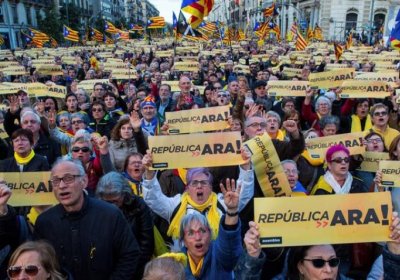Last December 21, Catalonia’s three parliamentary forces supporting independence — Together for Catalonia (JxCat), the Republican Left of Catalonia (ERC) and Popular Unity Candidacy (CUP) — won a 70-65 seat majority in the 135-seat Catalan parliament.
Six months of drawn-out negotiations over forming a pro-independence government then followed.










